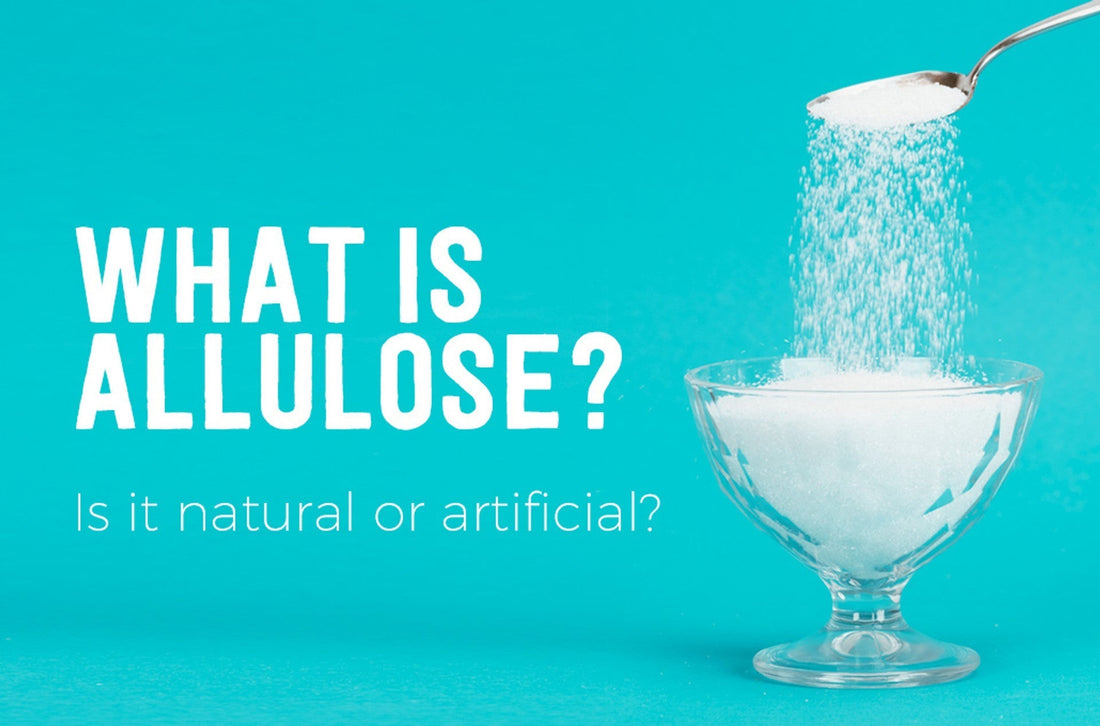Understanding Allulose: A Naturally Occurring Sweetener
As the demand for healthier alternatives to traditional sugar continues to grow, allulose is emerging as a preferred choice for those looking to reduce sugar intake without compromising on taste or quality. Unlike artificial sweeteners or sugar alcohols, allulose is a naturally occurring rare sugar found in small amounts in foods like figs, raisins, and jackfruit. What sets allulose apart is that it offers the same sweetness, texture, and satisfaction as sugar, but with a fraction of the calories and none of the drawbacks associated with high-glycemic sweeteners.
Unlike traditional sugar, allulose contains only 0.4 calories per gram—roughly 90% fewer calories than regular sugar. More importantly, it does not raise blood glucose or insulin levels, making it an excellent choice for those managing weight, blood sugar, or metabolic health. Its ability to deliver the taste and functionality of sugar while supporting overall wellness makes it one of the most promising sugar alternatives available today

Why Allulose is a Better Sugar Alternative
Many sugar substitutes have attempted to replace traditional sugar, but few offer the well-rounded benefits of allulose. Let’s explore how allulose compares to other popular alternatives such as stevia, maltitol syrup, and erythritol.
Allulose vs. Stevia: Better Taste, No Aftertaste
Stevia is widely used as a plant-based sweetener, but its intense sweetness—200 to 300 times sweeter than sugar—often results in a bitter or metallic aftertaste. Additionally, some people experience digestive discomfort when consuming stevia in large amounts.
Allulose, in contrast, provides a smooth, sugar-like sweetness without any lingering aftertaste. Unlike stevia, which alters the flavor profile of foods, allulose behaves like sugar in both taste and texture, making it a better option for baking, beverages, and gummies.
Allulose vs. Maltitol Syrup: Lower Glycemic Impact
Maltitol syrup, a sugar alcohol used in sugar-free foods, has a taste and texture similar to sugar but comes with digestive concerns. Since maltitol is partially metabolized by the body, it has a higher glycemic index (around 35) and can cause blood sugar spikes.
Allulose, by contrast, has a glycemic index close to zero, meaning it does not cause fluctuations in blood sugar or insulin levels. It is absorbed but not metabolized, making it a better choice for those looking to maintain stable energy levels and avoid sugar crashes.
Allulose vs. Erythritol: No Digestive Discomfort
Erythritol is another sugar alcohol that is commonly used in keto-friendly products. While it provides sweetness with zero calories, large amounts can cause bloating, gas, and digestive discomfort. Recent studies have also raised concerns about a potential link between excessive erythritol consumption and cardiovascular risks.
Allulose is naturally more gut-friendly, as it does not ferment in the intestines like sugar alcohols. This means it is less likely to cause bloating or gastric distress, making it a better choice for people with sensitive stomachs.
The Health Benefits of Allulose
1. **Supports Blood Sugar Management**: Allulose is absorbed into the bloodstream but not metabolized for energy, meaning it has no significant effect on blood glucose or insulin levels.
2. **Helps with Weight Management**: With only 10% of the calories of regular sugar, allulose helps reduce calorie intake while still providing sweetness.
3. **Gentle on Digestion**: Unlike sugar alcohols, allulose is easily digested and does not contribute to bloating or gas.
4. **May Support Heart Health**: Research suggests allulose may have beneficial effects on lipid metabolism and inflammation, potentially lowering the risk of cardiovascular disease.
Why Vitanergy Uses Allulose in Our Gummies
At Vitanergy, we carefully select every ingredient to ensure our supplements provide maximum health benefits without unnecessary additives. Our decision to use allulose as a sugar replacement in our gummies reflects our commitment to science-backed, high-quality formulations that align with our mission: Healthy Her 20-60.
Vitamin B Complex Gummies with Allulose
Our Vitamin B Complex Gummies, featuring 400 mcg of folate, are designed to support energy production, metabolism, and cognitive function. Instead of using high-glycemic sweeteners, we incorporate allulose to create a delicious, naturally sweet gummy without unnecessary sugar or artificial ingredients.
Vitamin D3 Multivitamin Gummies with Allulose
Vitamin D3 is essential for bone health, immune support, and mood regulation, particularly during colder months. Our Vitamin D3 Multivitamin Gummies provide an optimal blend of vitamins, using allulose to ensure a great-tasting, low-calorie supplement that aligns with a balanced, health-conscious lifestyle.
The Growing Role of Allulose in Nutrition
As the world moves toward healthier eating habits, allulose is gaining recognition as a breakthrough sugar alternative. Unlike traditional sweeteners, allulose provides a sugar-like experience with superior health benefits, making it an excellent choice for consumers who want to reduce sugar intake while maintaining great taste and functionality in their diet.
At Vitanergy, we remain committed to using science-backed, high-quality ingredients that empower women to take control of their health. By incorporating allulose into our formulations, we ensure that our supplements are not only effective but also aligned with modern wellness trends. As awareness around sugar alternatives continues to grow, allulose is proving to be the smarter choice for a balanced and healthier lifestyle.


